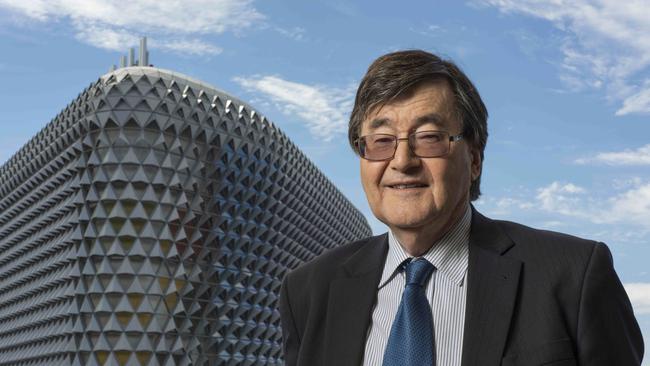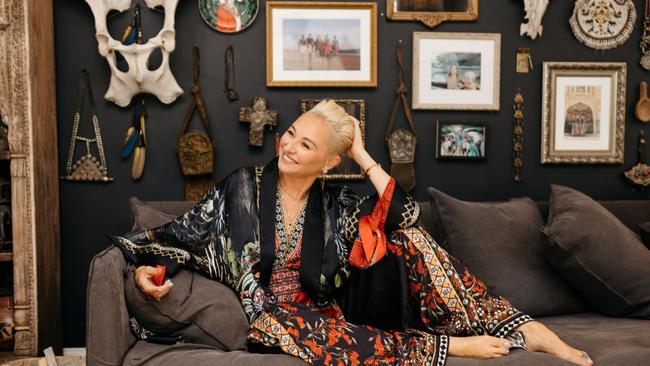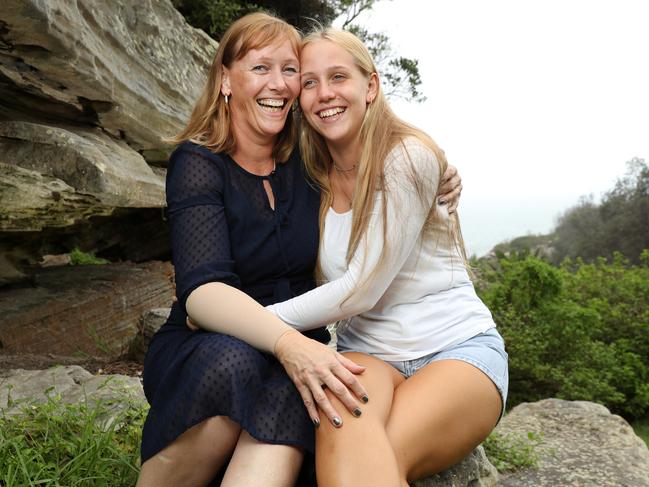Ambitious plan to end breast cancer deaths by 2030 unveiled
An ambitious new road map has been developed that aims to eliminate deaths from the number one cancer in Australia within a decade.
Health
Don't miss out on the headlines from Health. Followed categories will be added to My News.
Exclusive: Deaths from breast cancer will be non-existent within the next decade, according to an ambitious new Australian plan.
The four pronged strategy, being driven by the National Breast Cancer Foundation (NBCF), includes a world first study looking into why one in 10 women don’t survive the aggressive disease five years after diagnosis.
It will research how to get breakthrough immunotherapy drugs to work in breast cancer, fund new precision medicines and better diagnostic and screening programs to reduce breast cancer recurrence.
The aim is to drive down deaths from the cancer from 3000 a year to zero by 2030.

Breast cancer is now the number one cancer in Australia — 20,000 women will be diagnosed with it this year.
Although 91 per cent of women survive the cancer one in ten women still die within five years – which equates to eight deaths per day.
“We know it’s audacious but it’s important to have key drivers that keep us focused on what matters,” said NBCF chief Sarah Hosking.
A $100 million investment in research is required to achieve that goal.
Professor David Roder, Chair of Cancer Epidemiology and Population Health at University of South Australia is leading the study into treatment gaps and says early work in South Australia shows 96 per cent of women get surgery within three months of diagnosis.
“Where we are not so good is women under 40 (and older women aged over 80 and low income earners) get surgery later and we’re not sure why,” he said.
They also have their cancer diagnosed at a more advanced stage and have poorer survival outcomes.
His research is looking at how advanced cancer is at diagnosis, whether women have other health problems, how long it takes them to get treatment, what type of treatment they receive, whether the treatment is toxic and results in hospitalisation, when cancer recurs and how women rate the outcome of their treatment.

To help the cause fashion designer Camilla Franks who was diagnosed with a rare breast cancer two years ago has written a love letter to herself as if its 2030 and we have achieved zero breast cancer deaths.
“Today you are 12 years post breast cancer. 12 years since you sat in that doctor’s office and felt the world around you come crashing down,” she writes.
“I write to you as a woman who is proud, loved, relieved, grateful – but above all, alive,” she said.
“Today marks the year 2030. Over the last 10 years the National Breast Cancer Foundation has invested in emerging areas of research to eliminate breast cancer deaths. It is now a world without breast cancer. A world without women’s suffering. A world without loss and sadness. A world in which our mothers, daughters, sisters and girlfriends live without fear.”

Anke Timm was 34 years old and a single mother of a three-month-old baby girl when she found a breast lump she thought was mastitis but it was diagnosed as aggressive triple negative breast cancer.
Statistically this type of breast cancer has the least chance of long term survival without a recurrence and hers had already spread to her lymph nodes but she was lucky to receive a new cocktail of medications.
“I had a tough time with chemotherapy and radiotherapy and caring for a baby at the same time,” she said.
MORE NEWS:
Australian scientists create virus that kills cancer
Major cancer breakthroughs of the decade
Diamond Princess nightmare: ‘These people are in limbo’
The stars who refuse to show their kids faces online
The Sydney based mum switched jobs to work in the arts and has since passed the two, five, and 10-year mark, and her daughter, Tessa, is now studying for her HSC.
Setting a goal for zero deaths by 2030 was the first step to achieving it and meant people could focus on how to reach the outcome, she said.
